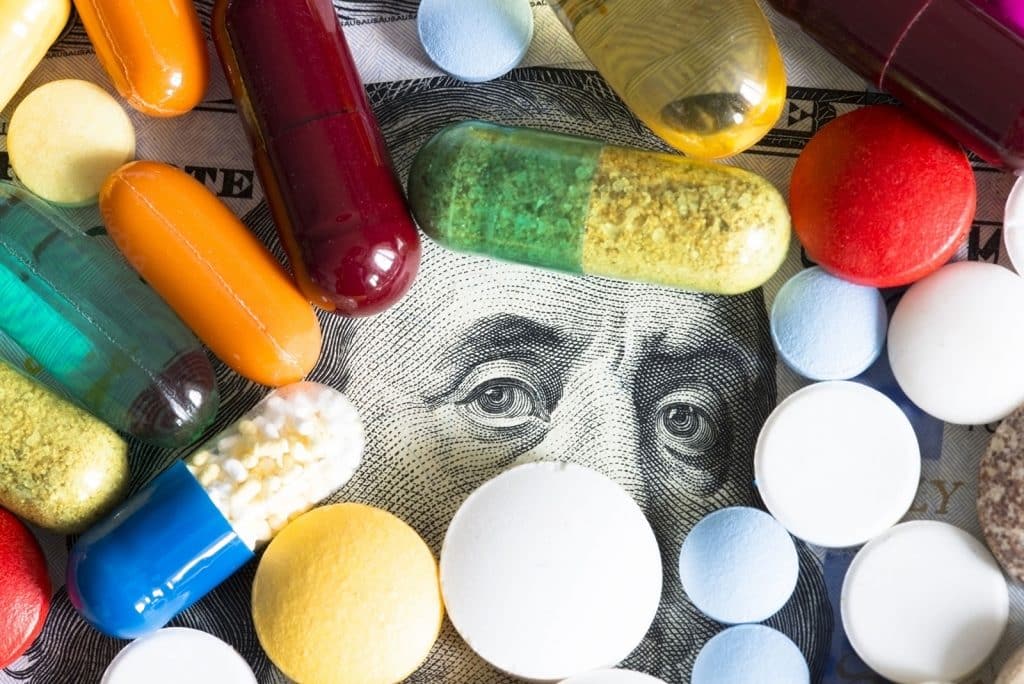Alcohol is a contributing factor in approximately 50% of all trauma injuries and deaths. Furthermore, it’s involved in 40% of all traffic crashes, fatal falls, and suicide. Fortunately, getting sober greatly reduces your odds of these injuries and fatalities, and it’ll also improve your general well-being.
Table of Contents
Physical Health Benefits
Quitting alcohol for a mere two weeks provides a whole host of physical health benefits. Keeping this in mind can be a helpful tool if withdrawal symptoms kick in. Remember: withdrawal is temporary, but the benefits you receive from going alcohol-free can help you for the rest of your life.
1. Improved Sleep Quality
Many people convince themselves that they need a nightcap to fall asleep. While it’s true that alcohol may make you feel drowsy initially, drinking before bed can actually disrupt your sleep patterns and cause you to wake up more frequently.
It also interferes with the crucial stage of REM sleep. Without staying in REM for at least 90 minutes, your ability to consolidate memories and process emotional experiences is hindered. This can lead to challenges in decision-making, emotional regulation, and problem-solving. On the other hand, getting enough REM sleep contributes to better sleep overall, allowing you to wake up feeling alert and refreshed.
2. Increased Energy Levels
By the end of your second week without alcohol, you’ll feel less fatigue and lethargy. Without the burden of processing alcohol, your liver—and your entire body—can focus on improving your overall wellness. Instead of wasting energy on recovery, your body can channel it into getting you up and moving.
Additionally, your physical performance and productivity will improve, as empty calories from alcohol are no longer contributing to excessive calorie intake and weight gain. Without alcohol’s depressant effects, your energy levels will rise, leading to increased motivation and activity, which may even promote weight loss.
3. Better Hydration and Skin Health
Have you ever noticed how your skin looks dull and dry? Well, once you stop drinking, it’ll have the opportunity to bounce back. That’s because alcohol causes dehydration, which leads to bags under your eyes, puffiness and red skin. Once it leaves your system, however, your skin will naturally take on a more hydrated and glowing appearance.
4. Stabilized Blood Sugar Levels
Even if you’re not diabetic, alcohol makes it harder to stabilize blood sugar levels. Your liver halts glucose production when processing alcohol, causing blood sugar to drop. This process can be disrupted for up to 12 hours. For heavy drinkers, this means chronically unstable blood sugar.
By stabilizing your blood sugar, you’ll achieve a better energy balance, improving both mental clarity and brain function. This also reduces the risk of developing serious health conditions like dementia or Alzheimer’s disease and boosts long-term healthcare outcomes.

Mental Health Benefits
When you stop drinking alcohol, you may suffer from some short-term side effects. However, you’ll also begin to feel several different mental health benefits.
1. Improved Mood and Emotional Stability
Studies have shown that one of the best ways to improve your overall mood is to quit drinking. In fact, comparing former drinkers to lifetime abstainers found similar levels of happiness, whereas drinking can cause anxiety, depression and other mental health issues.
Another problem caused by drinking is emotional instability. It becomes increasingly more difficult to regulate your emotional responses, and this can cause great strife in your life.
2. Clearer Thinking and Cognitive Function
Alcohol can literally change your brain chemistry. This causes several cognitive issues, including poor concentration, slow reaction time, poor memory and impaired impulse control. Within the first two to four weeks after you stop drinking, your brain will begin feeling much clearer. You’ll regain the ability to plan better, organize tasks, remember things and concentrate better.
3. Reduction in Stress and Anxiety
Alcohol and anxiety go hand-in-hand and create a vicious cycle. Drinking initially causes feelings of calmness, but it doesn’t last. Instead, your anxiety will go up as the alcohol leaves your system, which causes you to crave another drink. The safer way to deal with anxiety is by asking your doctor for help.
Stress increases your body’s levels of cortisol and adrenaline. In turn, your fight or flight response is turned on. If you’ve taken to drinking to reduce stress, you might be surprised to learn that alcohol actually increases your cortisol levels too. Detoxing may also temporarily boost your cortisol levels, but once you’re through this process, you’ll feel less stressed.

Social and Relationship Benefits
Alcohol is linked to an increase in physical and verbal abuse, and it can lead to infidelity and domestic violence. Even if you’re able to keep your alcohol-induced rage to a minimum, it can still erode trust and intimacy.
1. Improved Communication
One of the worst side effects of drinking is that it often causes people to lose their ability to think and communicate rationally. After you stop drinking, you’ll notice an increase in your level of patience, along with your ability to listen and engage in meaningful conversations. This will enable you to build stronger connections with your loved ones.
2. Rebuilding Trust
Unfortunately, when alcohol takes over your life, it makes it hard for others to trust you. For example, how many times did you promise your partner that you’d quit drinking? Quitting alcohol is a fantastic way to demonstrate your commitment to change and personal growth. It will take time, but your loved ones will begin to trust you again after you stop drinking.
3. Stronger Social Support
Drinking might seem like a way to gain more friends, but each person at the bar will ultimately care more about alcohol than helping you. Getting sober provides you with an opportunity to grow real social support in your community. When you engage in events without alcohol, you’ll also avoid potentially embarrassing situations and be able to remember everything too.

Personal Growth and Self-Discovery
It’s difficult to grow or discover new things about yourself when you’re constantly drinking.
1. Increased Self-Awareness
Alcohol use disorder makes your entire life revolve around drinking. Once you stop drinking, though, you’ll have the time and energy to reflect on personal goals and values. You’ll also have a lot of time to fill, which is perfect for the new interests and hobbies you’ll be able to dedicate yourself to.
2. Enhanced Self-Esteem and Confidence
Sobriety isn’t easy, especially at first. However, if you can stop drinking, you’ll receive a sense of accomplishment. Furthermore, your self-esteem and confidence levels will rise. Once you add on your improved physical and mental health, you’re certain to feel much better about yourself.
3. Setting and Achieving Goals
Setting and achieving goals often feels out of reach when you’re constantly drinking. Stop drinking for a mere two weeks, though, and your mind will be much clearer. This will naturally provide you with a clearer vision of your future, plus you’ll gain the ability to create and pursue new personal and professional goals.

Financial Benefits
Take control over the financial aspects of your life by becoming sober.
1. Saving Money
The average individual with alcohol use disorder can save approximately $3,000 annually if they stop drinking. You could pay for a nice vacation with that money, or you could invest in healthier lifestyle choices.
2. Improved Financial Planning
Again, you’ll have a clearer mind once you stop drinking. This makes it easier to focus on budgeting and financial goals. By being sober, you’ll have the opportunity to avoid racking up more debt.

Tips for Maintaining Sobriety Beyond Two Weeks
The first two weeks are often quite difficult. Getting past them will definitely change your life for the better, though.
1. Establishing a Routine
Building a routine allows you to have structure and stability as you go through times of significant change. This increases your feelings of control. Identifying your goals and defining your priorities will make it easier to pick a routine and stick with it.
2. Seeking Support and Accountability
Part of your routine should include multiple support and accountability partners. This is the reason that AA wants everyone to choose a sponsor. After all, support is crucial, but you also need someone who will hold you accountable for meeting your goals.
3. Practicing Self-Care
Self-care is a good way to restore balance to your life. It will also enable you to build up the necessary resiliency to remain sober. Getting enough sleep, eating a balanced diet and engaging in regular exercise are all forms of self-care.

Conclusion
It may initially seem difficult, but by remaining sober for a mere two weeks, you’ll experience many benefits such as improved sleep, increased energy levels, better skin health, stable blood sugar, improved mood, better cognitive function, improved communication, better self-esteem, saving money, etc.
Whenever you begin to doubt your sober journey, reflect upon how much better your personal relationships, mental health and physical health are becoming, along with your boosted financial health. There are people who believe in you, and you owe it to them and yourself to stick with your new lifestyle choice.
You don’t have to do it alone. In fact, you shouldn’t! Seek support to help you stay on the right path. By embracing the many benefits of being sober, your life will vastly improve.
FAQ
What are the benefits of 40 days no alcohol?


